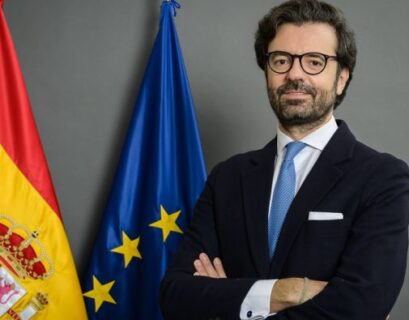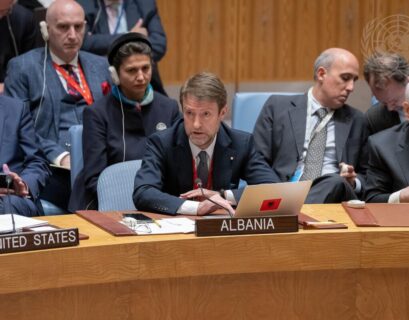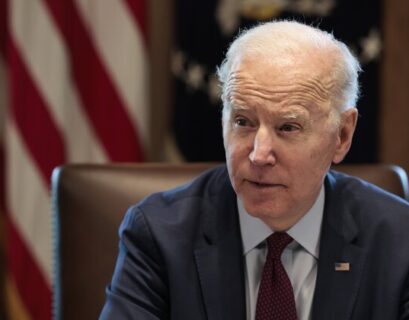TOBIAS RUETTERSHOF
The EU aims to initiate accession negotiations with Albania and North-Macedonia. The EU Ministers of the 27 Member States came to this decision on the 24th of March during a video conference call. Such decision was welcomed by all parties and remains subject to final endorsement by European Council Members. Both Germany and Albanian opposition parties have sought to draw attention to the fact that the opening of the negotiations is subject to the fulfillment of 15 conditions, which go beyond those originally laid-out by the German Bundestag in September 2019. It is in light of these new conditions that the proposal found approval amongst previously sceptic Member States. The EU Commissions’ original proposal contained no such conditions.
Hope in the time of COVID-19
With political effort largely shifted towards managing the Corona-Crisis, the decision taken by the 27 European Ministers of the Member States with regards to the opening of the accession negotiations could have almost gone unnoticed. After the first cases in Albania were confirmed in Albania on the 8th of March, the Government took swift measures to reduce social contact by curtailing freedom of movement. Citizens are currently allowed to leave their houses only during specific hours and for essential purposes. The country’s borders have been shut to almost all non-commercial transport, with exception to few commercial flights operating through the Airport. Public life has come to a still.
The Albanian Government declared the COVID – 19 Epidemic a national disaster, in line with provisions of the Civil Emergencies Law – a measure heavily advocated in previous days by Lulzim Basha, leader of the Democratic Party, which in turn is a member of the European People’s Party. Under such circumstances, the Government has the right to implement extraordinary measures that curtail civic freedoms, including restricting freedom of movement, imposing mandatory quarantine for specific groups or the population as a whole and enabling house-searches. In addition, the Government is now under an obligation to compensate individuals and enterprises for damages and losses that arise both as a result of the pandemic as well as the measures taken to contain it.
In these days of hardship, the Government nevertheless welcomed the decision of the EU Council of Foreign Affairs to start the accession negotiations. The current Prime-Minister and leader of the Socialist Party, Edi Rama, greeted such development by stating that Albania has “now entered a new historical phase”:
“The EU Gates have finally opened at a time when the doors of our own houses must remain closed. Our European journey continues, an extraordinary amount of work awaits us.”
President Ilir Meta also welcomed this decision and stressed upon the Government that no time should be lost in fulfilling the conditions.
“I greet the political decision taken today by the Council of Ministers. The approval to the start of the negotiations serves to confirm Albania’s european perspective. No time should be wasted in fulfilling the conditions necessary before the intergovernmental conference.”
Luzim Basha, leader of the biggest opposition party, also welcomed the decision but drew attention to the responsibility of the Albanian Government vis-à-vis the fulfillment of the conditions.
“By agreeing to start accession negotiations EU Member States have expressed their support towards Albania and its people. It is now up to us to satisfy the conditions. The faster we are able to fulfill our obligations, the faster will we be able to realize the wishes of the Albanian People.”
Overcoming hurdles
The proposal to initiate accession negotiations for Albania and North-Macedonia, a matter that has been widely discussed in recent years, ultimately failed to gain needed support in October 2019, in light of reservations from France, Denmark and the Netherlands. In addition to objections raised due to the high number of Albanian Asylum-Seekers, President Macron called for a fundamental reform to the procedure by which membership is granted. In the Netherlands, Members of Parliament raised concerns regarding the lack of the freedom of press, problems associated with the electoral reform, illegal immigration and a perceived inability to fight financial crime.
In February 2020 the European Commission addressed reservations put forth by France by proposing a reform to the membership process. The proposed reform calls for a strengthened role of Member States during membership negotiations as well as the application of a new system, which through expedited procedures and additional funding aims to promote adherence to the rule of law, in line with European standards. Any delays in, or actions that represent hindrances to the reform process will on the other hand be punished through a reduction in funds or the implementation of more stringent review procedures. Cooperation between the EU and candidate Countries should in addition be increased through financial investments.
The EU Commission’s Proposal contains another novelty, in that it forbids the closing of the 33 negotiation chapters in instances when objectives vis-à-vis rule of law are not achieved. In addition, the negotiation chapters are now to be organized in thematic clusters and shall approached as such, so that a cluster of chapters may only be completed as a whole. It is expected that negotiation chapters will be contained in 6 such clusters, respectively dealing with; fundamentals; the internal market; competitiveness and inclusive growth; green agenda and sustainable connectivity; resources, agriculture, cohesion and external relations.
Another novel provision enables Member States to assign and send their own experts to Candidate Countries in order to monitor actual progress with reforms. Before the reform such power could only be exercised by the European Commission.
Distrust towards the Commission
A month after the membership process reform-proposal the European Commission published the reports detailing the performance and progress of the Candidate Countries in implementing reforms in relation to the rule of law. Therein the commission acknowledged that both countries have achieved tangible and sustainable results. In light of such progress both the European Commission as well as European Commissioner for Neighborhood and Enlargement Olivér Várhelyi were in favor of an unconditional initiation of the accession negotiation.
It did however become clear during the videoconference on the 24th of March that this recommendation would not find unanimous support amongst the Ministers of European Affairs, at least in Albania’s case. The multitude of problems that continue to plague the country served to cast a shadow of doubt over the objectivity of the report, which appeared to some to paint a picture that was essentially more positive than the actual circumstances could allow for. Several factors led to this conclusion, including: the fact that both the High- and Constitutional-Court have not functioned for over a year, an increase in corruption levels and nepotism, the Governments’ attempt to restrict freedom of the media, problems with organized crime and especially problems with drug and human trafficking. In light of such problems an unconditional approval seemed almost impossible, especially if one takes into account previous objections raised by France, Denmark and the Netherlands.
In order to enable the reaching of a consensus amongst the Member States as regards the initiation of the accession negotiations, the German Bundestag had in September — through the initiative of the CDU/CSU parliamentary groups and the SDP— put forth a proposal wherein the initiation of the negotiations was made contingent on the fulfillment of 9 conditions. These have now been increased to 15, in line with requirements delineated by Member States and have been integrated in the decision of the Council.
Dr. Johann Wadephul, Vice-Chairman of the CDU parliamentary group in the Bundestag who is in charge of Foreign Affairs, interprets this decision as a sign of Member States’ distrust towards the European Commission. Wadephul stated:
“The Commission proposed an unconditional opening of accession negotiations for Albania. That Member States made the opening of such negotiations contingent on the fulfillment of 15 conditions is clear evidence that Member States expect the European Commission to be more stringent and careful in monitoring progress, both in terms of thee fulfillment of the conditions as well as the negotiation process.”
Dr. Katja Leikert, vice-chairman of thee CDU/CSU parliamentary group in the Bundestag and responsible for European Affairs underlined in her statement the role of the Bundestag in the role played in achieving consensus between Member States:
If the Albanian Government exercises the political will needed to fulfill these conditions, the German Government will support the government in this process. The German Bundestag has voted to initiate negotiations as early as 26 September 2019 but remained insistent that the Government should work to address serious deficiencies. By adopting such an approach, the Bundestag has shown Member States that put forth reservations a new path towards the opening of the negotiations, which was approved today with the decision to initiate the accession negotiations.
Two-step procedure for the opening of accession negotiations
The initiation of accession negotiations foresees amongst others the holding of two conferences, after which the negotiations related to specific chapters or specific clusters will be opened. The decision of the Foreign Ministers taken on March 24th delineates a two-step procedure with regard to the fulfillment of the conditions, which must be realized before the first and second conferences respectively and thus before the initiation of the negotiations related to thee first cluster of Chapters, titled “Fundamentals”, which predominantly deals with matters concerning the rule of law. There are in total 15 conditions to be fulfilled. This includes the 9 original conditions set forth by the Bundestag as well as 6 additional ones
Before the start of the first conference the Albanian Government must fulfill 6 preconditions:
- Enacting the electoral reform.
- Implementing the electoral reform and guaranteeing the functioning of the High-Court and the Constitutional Court. The pertaining opinions of the Venice Commission must be adopted.
- The process of building the Special Prosecution Unit for the Fight against Corruption (SPAK) and the National Investigation Bureau (NBI) must be completed.
- New Condition: With regard to the fight against corruption and organized crime the recommendations delineated in the action plan of Financial Action Task Force must be implemented. These recommendations aim to lead to increased transparency in relation to money circulation.
- New Condition: The Albanian Government must take measure to combat thee asylum-seeking phenomenon and guarantee the repatriation of asylum-seekers whose applications are denied.
- New Condition: Reviewing the new Media Law in line with the recommendations of the Venice Commission.
Before the second conference, and consequently before the start of the negotiations regarding the chapter clusters/first clusters, Albania must satisfy 9 additional conditions:
- Starting judicial proceedings against those judges and prosecutors for whom it has been established, as a result of the Vetting Process, that they engaged in criminal activity.
- Starting investigation proceedings against individuals accused of buying votes.
- Tangible and sustainable achievements in fighting corruption and organized crime at all levels, including the initiation and conclusion of judicial proceedings against high functionaries and politicians.
- Concrete achievements in implementing the Public Administration reform.
- The Constitutional must render a judgment on the validity of the local elections held on the 30th of June 2019.
- New condition: The implementation of the 2017 Law for the Protection of Minority Groups.
- New Condition: Enacting a legislative bill in relation to the population census in line with the recommendations of the Council of Europe.
- New condition: Progress in the process of registering property titles.
An analysis of the imposed conditions clearly shows the initial decision of the German Bundestag found support amongst other Member States and that its contents have been fully integrated in the Council’s Decision. The plan delineated by the German Bundestag served to address concerns raised by France, the Netherlands and Greece and acted therefore as a “golden bridge” towards gaining their approval.
A lot remains to be done
There exists a widely known expression within football-circles which is fitting to the current situation: ‘The game begins after the game.’ The monitoring process of progress made in fulfilling the conditions is now of primary importance will undoubtedly be a scrupulous one. This process should however not be turned into a box-ticking exercise. The conditions must be fulfilled both in substance and spirit. The European Commission must play an important role here. In contrast to the rosy outlook presented in the last progress-report, on whose objectivity the Ministers for European Affairs have expressed themselves most clearly, in the future it will be necessary for the Albanian Government to be provided with constructive criticism and closely monitored in its attempts to fulfill their obligations. The German Bundestag too, will certainly make use of its parliamentary right to both closely monitor this process and express its opinions in relation to potential improvement areas. If need be, other Member States may also be involved in such a process, especially those whose legislative branch is actively engaged in such matters i.e. as in the case of the Netherlands.
Even in Albania it is necessary that all political parties contribute to the realization of the objectives set out throughout this process. It is rather interesting to note that whilst the Albanian Government commented on the positive decision, it failed to acknowledge the fact that such decision came with 15 conditions attached, even though the content of such conditions and but also the mere addition thereof demonstrate that the situation in the last few years has worsened. The opposition must therefore exercise a most important role in supervising government action.
Leader of the opposition Lulzim Basha warned against excessive optimism:
“Politicians are at times willing to sell soap and say it is cheese. Some screamed victory even as a decision was taken not to open the accession negotiations. There is no time for games. We must change our behavior, otherwise we cannot gain EU membership.”
For the time-being Albania will have to face the great challenge posed by the COVID-19 pandemic. The EU will support Albania in addressing this challenge. Such support will prove vital not only to Albania but to all of the Western Balkans. The EU has granted up to 50 Million Euros to Albania in an effort to combat the virus and the consequences that come with it. As much was stated by the Ambassador of the EU Delegation to Albania, Luigi Soreca, a few hours after the positive decision for the initiation of the accession negotiations. Aid packages include 4 Million Euro for medical equipment, 11 Million Euros for social security and up to 35 Million Euros in economic aid. We can only hope this challenge may be overcome as soon as possible, so that the country may redivert its attention to meeting the many challenges that lie ahead.
Not only in order to fulfill the EU’s conditions, but also to turn Albania into a truly democratic State.









